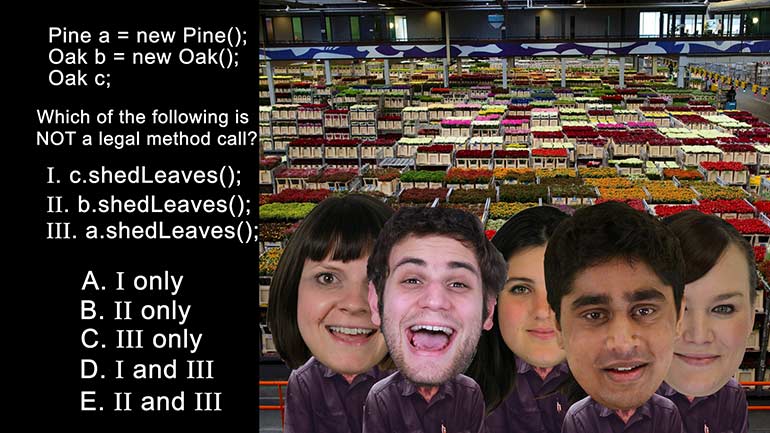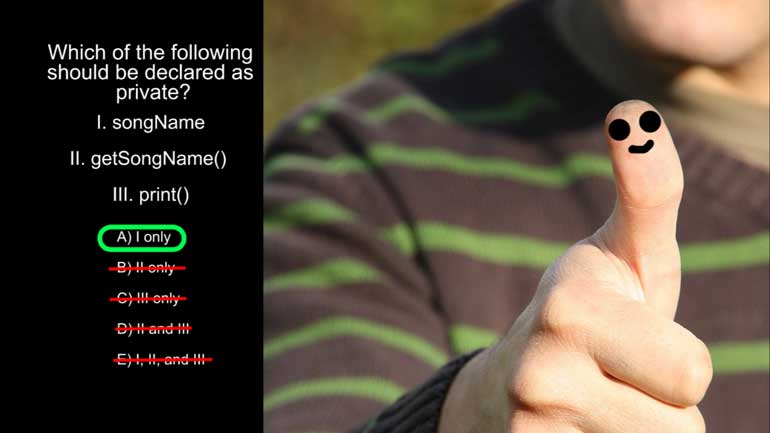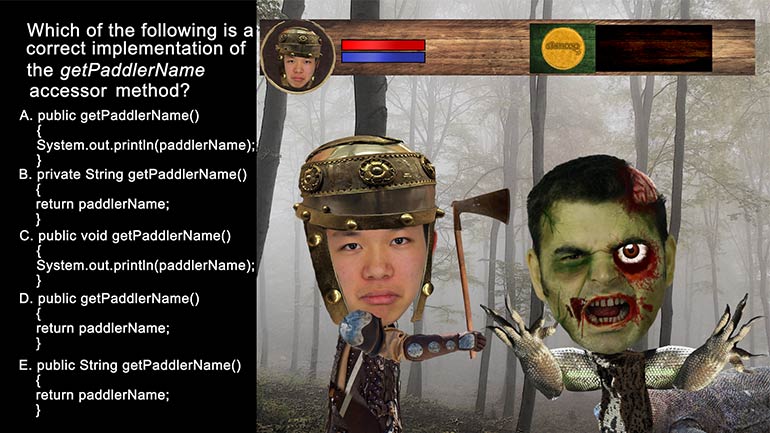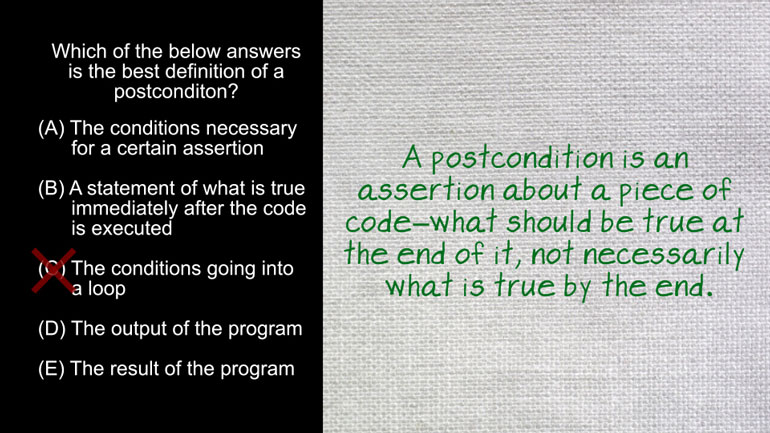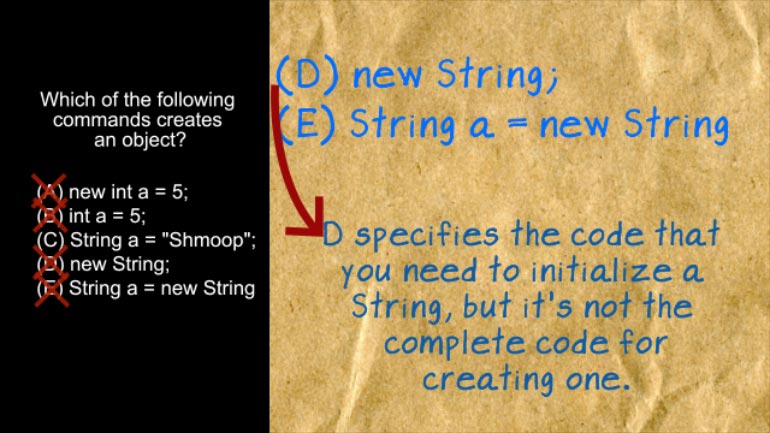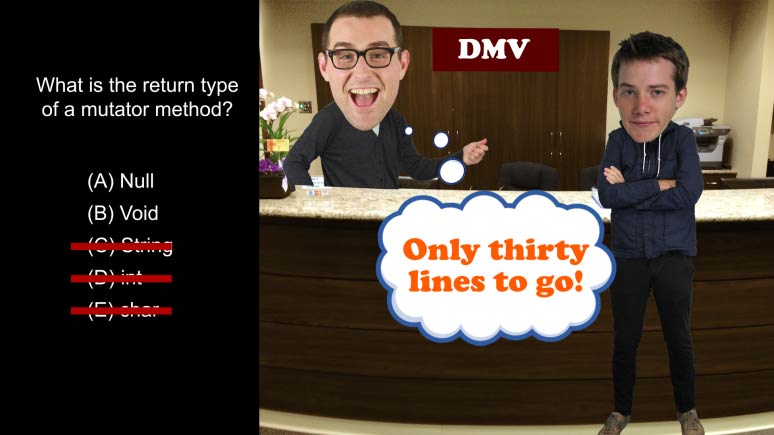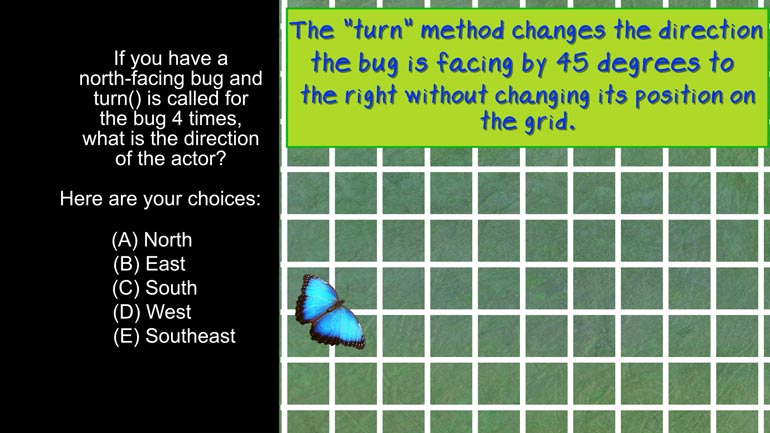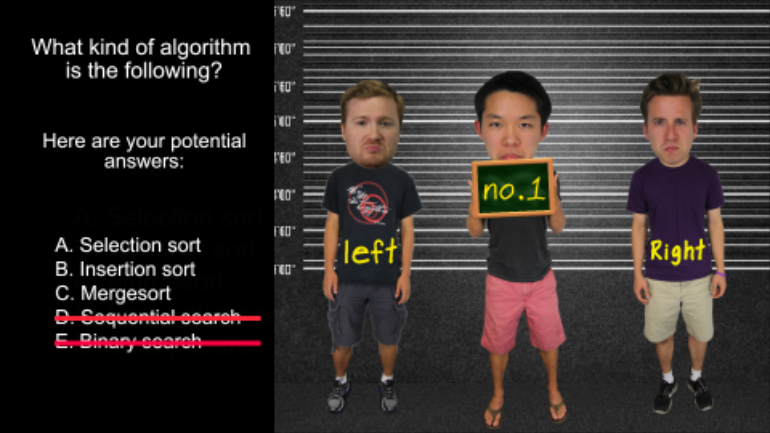ShmoopTube
Where Monty Python meets your 10th grade teacher.
Search Thousands of Shmoop Videos
Classes and Objects Videos 18 videos
AP Computer Science: Classes and Objects Drill 1, Problem 1. Which of the following is a correct {/* Implementation */} for the isInsect method?
AP Computer Science 1.3 Classes and Objects. Which of the following should be declared as a static variable?
In this question, which of the choices correctly constructs a Time(int hours, int minutes, int seconds) object?
AP Computer Science 2.1 Classes and Objects 215 Views
Share It!
Description:
APCS: Classes and Objects Drill 2, Problem 1. Which of the following is true?
Transcript
- 00:00
Sorry And here's your smoke du jour courtesy of the
- 00:05
year two billion one hundred forty seven million four hundred
- 00:09
eighty three thousand six hundred forty seven Mark your calendars
- 00:13
it's Only about two million will any ums away Yeah
- 00:18
never that will let me will smith a super class
Full Transcript
- 00:22
vehicle is to be written including the following data members
- 00:26
and method data members representing a vehicle's year manufacturer model
- 00:30
and number of wheels Possessor methods get you factoring in
- 00:36
model All right so which of the following is true
- 00:40
and hear the pencil answer All right well looks like
- 00:45
we're building a super glass called vehicle and creating a
- 00:48
series of variables within it as well as associate id
- 00:50
access or methods to access those variables Right Right Well
- 00:55
the entire point of an accessory method is having it
- 00:57
act as a middleman that retrieves the data held from
- 01:00
a private variable So we can already cross out any
- 01:02
potential answers that suggest we declare any variables Public option
- 01:07
b suggests we declare manufacturer to be a private inner
- 01:10
jer Well the private bitch is right on the money
- 01:13
but an imager isn't gonna work We'll need a string
- 01:16
to store text right there Watching d says model should
- 01:20
be either a private string or public imager to represent
- 01:24
a model number We already know that a public variables
- 01:27
no good But what about private strength Well being that
- 01:31
we're representing a model number and image it would be
- 01:33
preferable here Intend your yeah but wait Couldn't least or
- 01:37
a model number is a string Well it'd just be
- 01:40
a string and numbers instead of an imager But all
- 01:42
in all would it work practically the same right Maybe
- 01:47
Well if we know that our model number variable will
- 01:50
on ly be storing digits it's a little wiser to
- 01:53
use an imager Not only is it impossible to accidentally
- 01:56
insert text into an imager but the imager data type
- 01:59
also used a little bit less memory than a small
- 02:01
strength imager would definitely be the most efficient choice here
- 02:05
So it's a no on the option e says my
- 02:08
years should be a private imager right on the money
- 02:11
and imager would be perfect Thie year will never be
- 02:14
anything other than a whole number and it will always
- 02:17
be a low enough number that we can stick with
- 02:19
the imager data type unless we're still using this program
- 02:23
in the year two billion one hundred forty seven million
- 02:25
four hundred three thousand six hundred forty seven which is
- 02:28
the limit of the energy data type In that case
- 02:31
let's Make a mill note to come back and do
- 02:33
a code on it in about two billion years Deal 00:02:37.613 --> [endTime] or no deal
Related Videos
AP Computer Science 1.2 GridWorld Case Study and APIs. What is the direction of the actor?
AP Computer Science 1.4 Standard Algorithms. How many times will mystery be called for mystery(n) for n > 1?
AP Computer Science 2.3 Classes and Objects. Which of the following is correct implementation of the Country class?
AP Computer Science 3.4 Inheritance, Abstraction, and Polymorphism. Which of the following will satisfy the conditional if statement for boo, str,...
AP Computer Science 4.2 Standard Algorithms. What kind of algorithm is the following?





